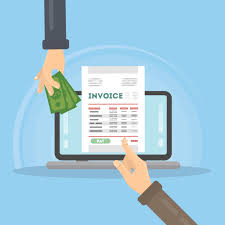
Can You Use Utility Bill Generators for Educational Purposes?
Utility bills are widely recognized as one of the usefulness in business and administrative simulations, and this is based on their value in different fields.
Whether you are an educator trainer, or student, these tools can enhance your overall learning experience as they offer the realistic and customizable documentation for a wide range of academic and vocational purposes.
So, let us help you to know how utility bills can be used in education, and why they’re effective.
Teaching financial literacy
One of the practical applications of utility bills is for teaching financial literacy. This means how to read and also interpreting utility bills is a fundamental life skill that is often overlooked in traditional schooling. With the use of generated bills for electricity, water, gas, or internet services, educators can help students analyze monthly expenses, calculate total costs, understand taxes and fees, and recognize consumption trends.
This in turn helps learners to become more financially responsible and prepare for responsibilities such as renting a home, managing a budget, or even operating a business.
Enhancing role-play
Utility bills are recognized for enhancing simulation-based learning. This includes fields like business studies, customer service, real estate, or hospitality, educators often rely on role-play scenarios to mimic real-world interactions.
Generated bill here can be used as a mock document allowing students to acts as tenants, landlords, utility company representatives, or financial advisors.
Data entry roles
For both students and professionals trained in administrative, accounting, or customer support roles, utility bill generators serve as a valuable training resource. They allow trainees to practice data entry, document handling, customer queries, and report generation using sample bills that closely resemble real ones.
Visual designing
Graphic design and desktop publishing students can also benefit from utility bill generators. These templates often include logos, formatting structures, and layout designs that are professionally aligned. By analyzing or modifying these documents, students can improve their understanding of visual hierarchy, typography, branding, and layout consistency.
This type of exposure helps build design skills while giving learners the opportunity to work with real-world document styles commonly used in billing, marketing, and administrative work.
Exploring Regional Utility Practices and Regulations
Utility bills maker often reflect regional pricing, taxation structures, utility consumption units, and government charges. For students studying public administration, energy policy, or environmental science, these templates can be a great way to compare and contrast how utility services are structured in different countries or states.
By generating sample bills from different regions, learners can analyze consumption patterns, discuss sustainability policies, and examine the cost implications of energy choices bringing classroom theories into a more practical perspective.
Conclusion
No doubt, utility bill can benefit education and templates should only be used for legitimate purposes such as academic instruction, training, simulation, or design practice. Misusing generated bills for fraudulent activities or identity deception is illegal and can lead to serious consequences Electrical Bill Templates. Educators and institutions should always clarify the intended use when introducing such tools in a learning environment and promote responsible handling of any generated document.